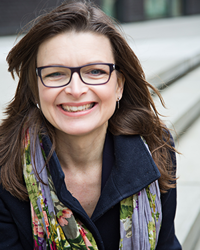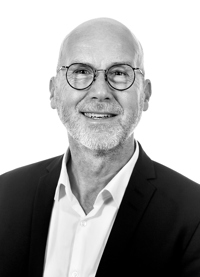Telemediated training for patients with severe and highly severe COPD
Patients with very severe COPD (Chronic Obstructive Pulmonary Disease) often decline physical training situated outside their home. As a result of this, their functional level can fall, everyday tasks become more difficult and they may be readmitted to hospital.
PROJECT PERIOD
Start: August 2015
End: September 2020
Telemediated group training in the patients’ homes, supervised by a physiotherapist to make training possible for this group of patients, has been developed and is being practiced at various locations in Denmark.
The general theoretical approach in this research project was Critical Psychology and Science and Technology Studies (STS).
AIM
The aim of this research project was to explore patients’, their partners’, and health professionals’ experiences with home-based telemediated training for patients with very severe COPD to generate knowledge that can be used in clinical practice and future studies.
The Practical Research Project consisted of two parts: a scoping review and an empirical study with analyses of the telemediated training as a part of daily living, and of the telemediated training as a practice.
RESULTS
For some patients and their partners, telemediated training can act as an agent of hope in holding on to essential everyday life activities or hope of being able to resume some of these activities. Telemediated training can therefore be offered as maintenance training (part of a palliative approach) for those severely affected by COPD in contrast to training these patients with an aim of improvement (a rehabilitative approach). For some of the patients, telemediated training could be experienced as burdensome and disciplining.
The physiotherapists’ understanding of the patients’ circumstances and needs for rehabilitation changed when they gained insight into the patients’ and their partners’ conduct of everyday life with very severe COPD. They noticed that the patients could benefit from training continuously instead of for a limited time. However, offering this to the patients was not possible within the rehabilitative framework of the municipalities.
In order to be able to train telemediated, several trade-offs were made: The conduct of everyday life became part of the training and sometimes compromised private life. Due to delay of sound and a reduced image on the screen, the physiotherapists were not always able to estimate the patients’ condition and therefore in some cases lowered the intensity of the patients’ exercises. In addition, communication in the training sessions was focused on training, and reduced conversations more oriented towards the patients’ disease or their illness experience.
PARTNERS
The project was a PhD project by Kathrine Rayce.
EXTERNAL FUNDING
The project was funded by Trefor, the Danish Lung Association and CoLab Denmark.

Kathrine Rayce
HTA Consultant, Postdoc
Odense University Hospital, Dept. of Clinical Development - Innovation, Research & HTA
(+45) 6541 7940 kathrine.rayce@rsyd.dk

Kristian Kidholm
Professor, Head of Research
Centre for Innovative Medical Technology (CIMT). Odense University Hospital, Dept. of Clinical Development - Innovation, Research & HTA
(+45) 6541 7960 kristian.kidholm@rsyd.dk
